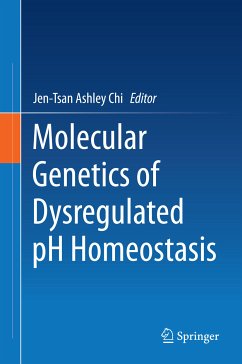Most biological reactions and functions occur within a narrow range of pH. Any changes in the pH have great impacts on the biological function at every level, including protein folding, enzymatic activities and proliferation, and cell death. Therefore, maintaining the pH homeostasis at the local or systemic level is one of the highest priorities for all multicellular organisms. Many redundant mechanisms are in place to maintain the pH homeostasis, a topic that is well covered in scientific literature and in medical textbooks. However, when the pH homeostasis is disrupted in various physiological adaptations and pathological situations, resulting acidity may trigger significant pathophysiological events, and modulate disease outcomes. Therefore, understanding how various cells sense and react to acidity have broad impact in a wide variety of human diseases including cancer, stroke, myocardial infarction, diabetes, and renal and infectious diseases. In this book, many investigators have summarized the molecular genetics on the detailed mechanisms by which different mammalian cells sense and respond to acidity. These chapters cover the acidity with broad impact in biological understanding and human diseases and review various sensing mechanisms and cellular responses to pH alterations in both physiological (taste, pain) and pathological (ischemia and cancers) settings. Furthermore, the authors present a broad spectrum of investigative approaches to cellular response to acidosis in a wide variety of human diseases.
Dieser Download kann aus rechtlichen Gründen nur mit Rechnungsadresse in A, B, BG, CY, CZ, D, DK, EW, E, FIN, F, GR, HR, H, IRL, I, LT, L, LR, M, NL, PL, P, R, S, SLO, SK ausgeliefert werden.









